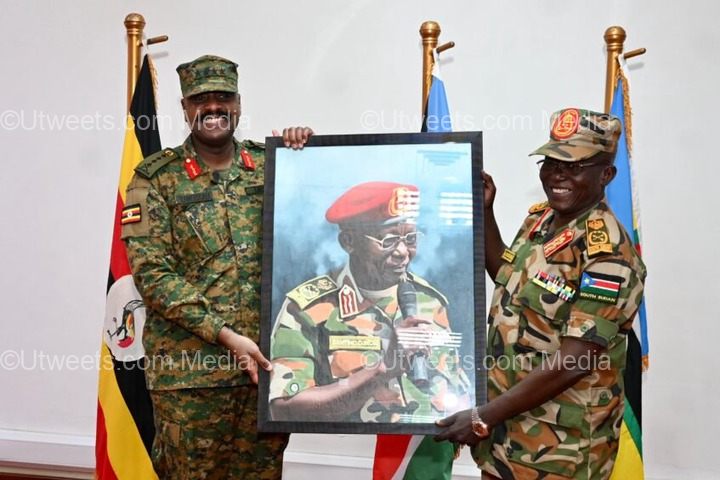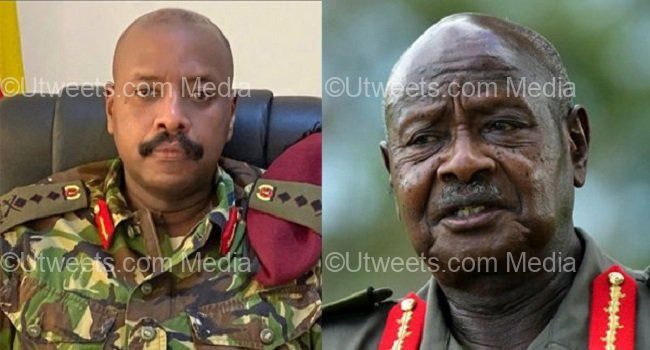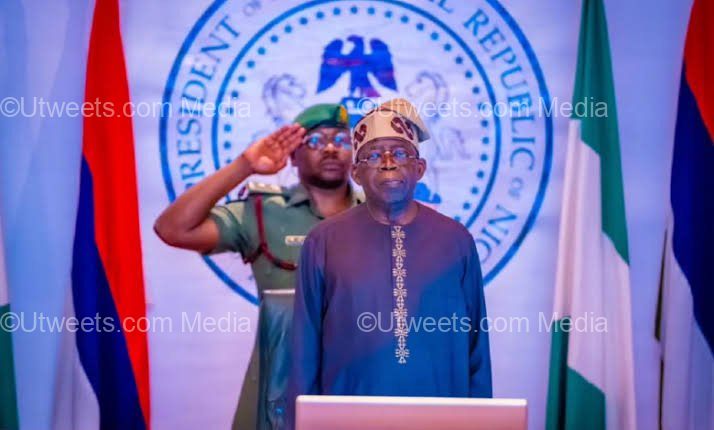A senior western diplomat recently told me, “Gen Muhoozi has demonstrated that you chaps have outgrown the stature of staging violent military coups in favour of a peaceful one, giving foreign investors renewed confidence in your country.” “If you must break the law, do it to seize power; in all other cases, observe it”, Julius Caesar (100 BC – 44 BC). All Ugandan leaders since independence have done just that. ...READ THE FULL STORY FROM SOURCE ...READ THE FULL STORY FROM SOURCE
Therefore, I should be forgiven for thinking that greatest Roman Emperor, immortalised in William Shakespeare’s ‘Julius Caesar’, was advising Gen Muhoozi, otherwise a law-abiding officer, to stage a coup to prevent Uganda slipping from the present organised chaos to uncontrolled chaos under a civilian president.
On September 21, Gen Muhoozi’s declaration was deafeningly loud: the next leader will be a soldier or policeman. If this not a coup announcement on behalf of military and police officers, what is it?
The security minister, Gen Jim Katugugu Muhwezi is the only army officer, who is also a professional police officer, trained at the prestigious Munduli Police Academy, Tanzania.
I believe that, apart from his strong Christian failure, it was his professional police training, which led him to release me from detention in 1987.
Against this background, the Gen Muhoozi coup has been so subtle and peaceful that, save for the usual social media warriors, the majority of Ugandans are supporting it through their deafening silence.
These silent Ugandans are not the only supporters.
A senior western diplomat recently told me, “Gen Muhoozi has demonstrated that you chaps have outgrown the stature of staging violent military coups in favour of a peaceful one, giving foreign investors renewed confidence in your country.”
You can bet that other western diplomats are supporting the confidence-enhancing coup as well. After all, they need a semblance of peace and stability in Uganda to regain their former trade, investment and diplomatic advantages in the country, since lost to the China, Russia, Turkey and some Arab gulf-states.
Let me elaborate for the benefit of Bazukulu, the common features that ran through all seven coups which occurred in Uganda between 1966-1986.
Heavily armed tribesmen determined to grab state power would converge on Kampala, surround strategic installations – the army headquarters, parliament, the General Post Office, State House and the president’s residence, Entebbe international airport, Radio Uganda and announce a military takeover, accusing the incumbent president and his tribesmen of treating the country as their private estate.
With orders to kill, the victorious tribesmen would impose a curfew and start hunting down anyone and everyone remotely associated with the former present, killing or detaining them and grabbing their private property.
They would then move to public properties, looting and burning down what they could not carry.
Feeling invincible, they would spread lawlessness all over the country, wreaking havoc. Educated Ugandans fled with their skills, foreign investors stayed out and the economy collapsed.
That was what Obote’s men did in 1966; that was also what Idi Amin did in 1971-79. The “Liberators” from Tanzania did the same in 1979-85. And, generals Toto and Basilio Okello did the same thing in 1985.
In every case, Uganda became a virtual failed state in which everyone and no one in particular was in control.
These self-seeking gunmen included the Federal Democratic Movement of Uganda (FEDEMU), Uganda National Army (UNLA), Uganda National Rescue Front (UNRF), Save Uganda Movement (SUM), Former Uganda National Army (FUNA), West Nile Regiment (WNR) and, Force Obote Back Again (FOBA), an imaginary group headed by Obote’s former Vice President Paulo Mwanga.
To their credit, the NRA, the most organised rebel group, strategically used and destroyed or co-opted the other rebel group leaders.
That is why, today, despite the Muhoozi-led army and police coup, Ugandans and foreigners living in the country are peacefully carrying on with their daily routine. Public offices, transport systems, banking and financial institutions are operating.
But this alone will not be enough to win for Gen Muhoozi and his fellow coup-makers and endless silent support and home and abroad.
He must have a clear strategic vision for taking Uganda far and above what his father has achieved in terms of social and economic transformation
Museveni has unified Uganda’s 56 tribes into just two self-interest groups: the corrupt, and the anti-corruption brigade, who would be just as corrupt if they had access to huge public funds.
To go forward, Gen Muhoozi should take into account the three P principles of political leaderships: Policy, Politics and Presentation. Sadly, he is a disaster when it comes to presentation, frequently but needlessly twitting divisive messages such as the UPDF is “my army” and the “Bachwezi” are a special people.
Instead dividing Ugandans, he should unite the country with rallying call against population explosion, the number one existential security, economic and social threat facing Uganda.
Like his father, Muhoozi will never provide adequate, nor quality public services, especially education, health, clean and above all, employment as long as population continues to grow exponentially.
Consequently, Gen Muhoozi will need to apply carrot and stick to persuade Ugandans to produce fewer children. For example, he will need to impose a tax on those who produce more than two children while offering substantial discount on school fees and medical bills for those with two children, or less.
Should I say any more?
If you are opposed Gen. Muhoozi’s coup, what is your alternative?
It is a monumental self-delusion to believe that a “democratically” elected Bobi Wine, Patrick Amuriat, Col Kizza Besigye, Norbert Mao or Jimmy Akena would bring anything other than a vicious cycle of violent coups of the past. After all, all the opposition parties are already staging internal coups and counter-coups.
Why?
We, Ugandans are ungovernable. Ask Obote, Amin, Lule Binaisa, Paulo Mwanga, Tito and Basilio Okello.…For More READ THE FULL STORY ▶▶



